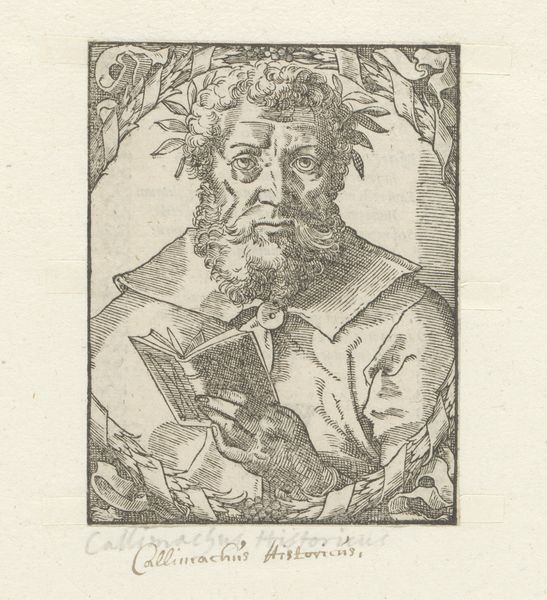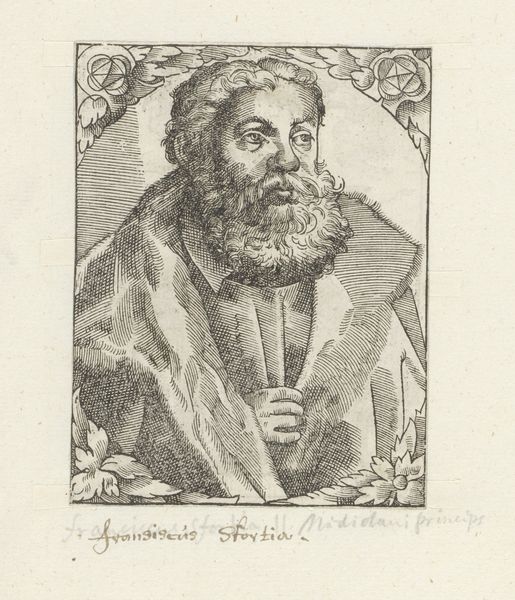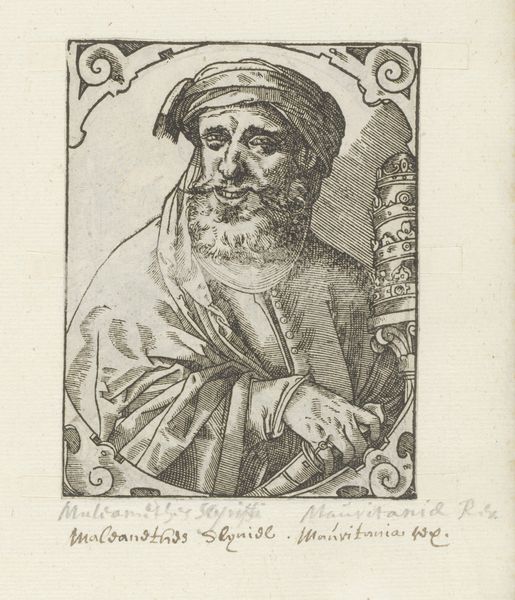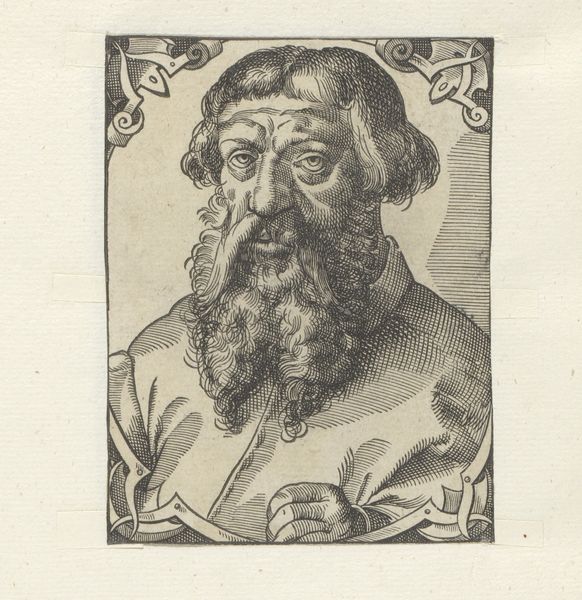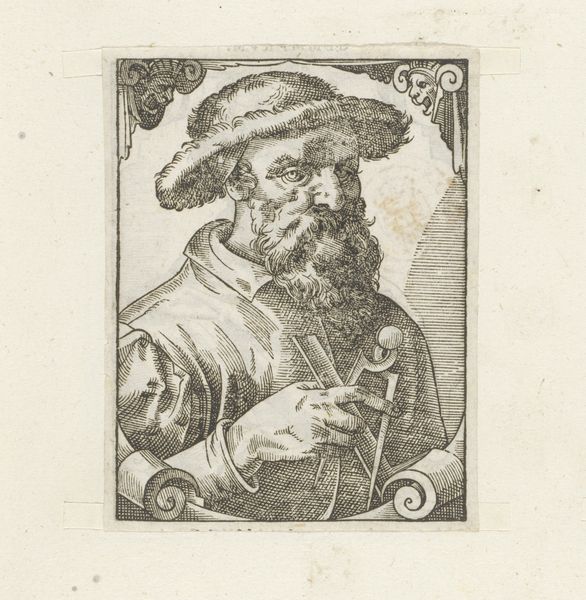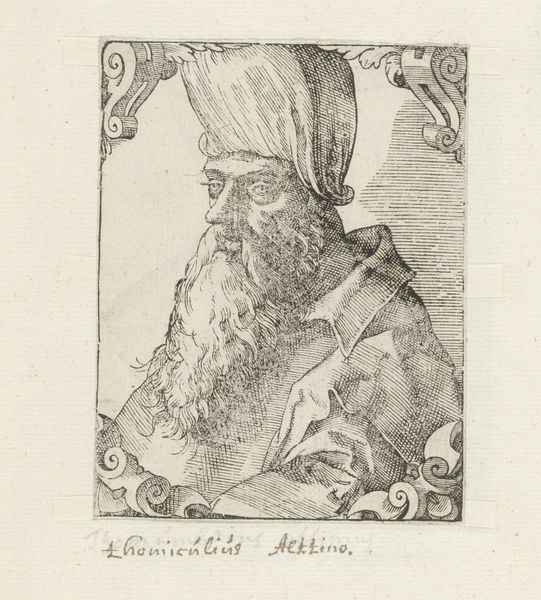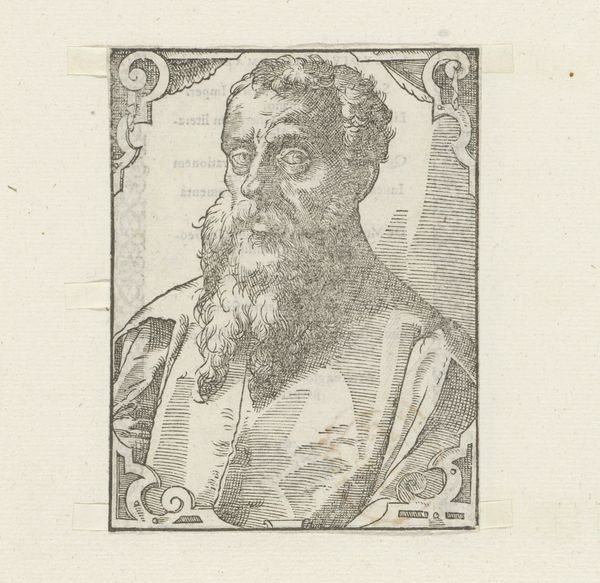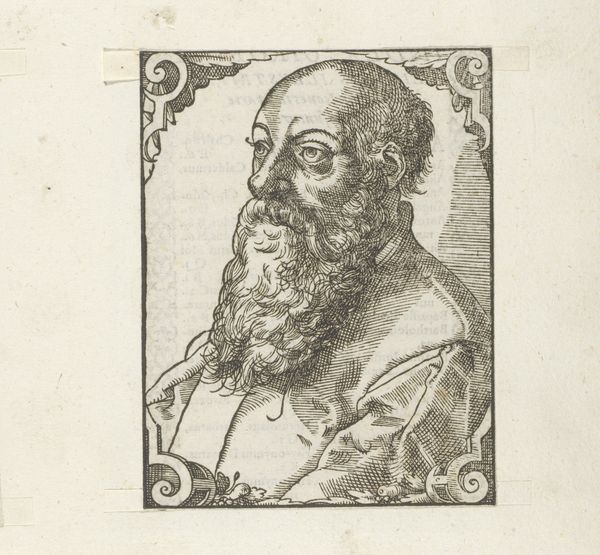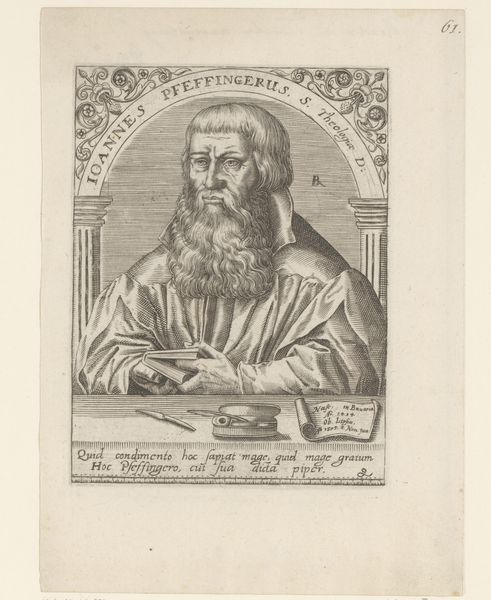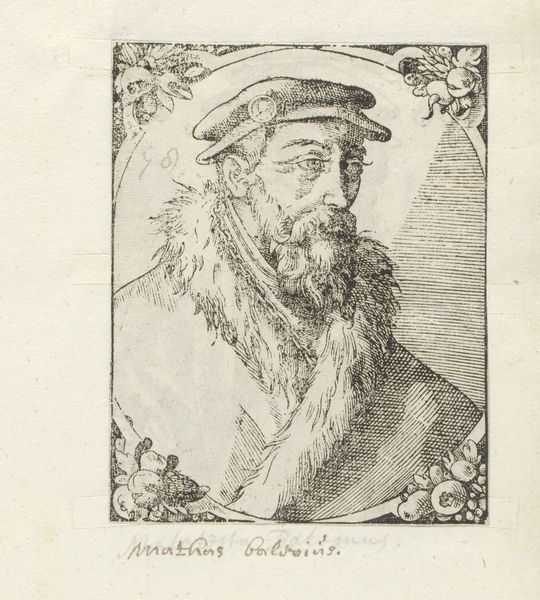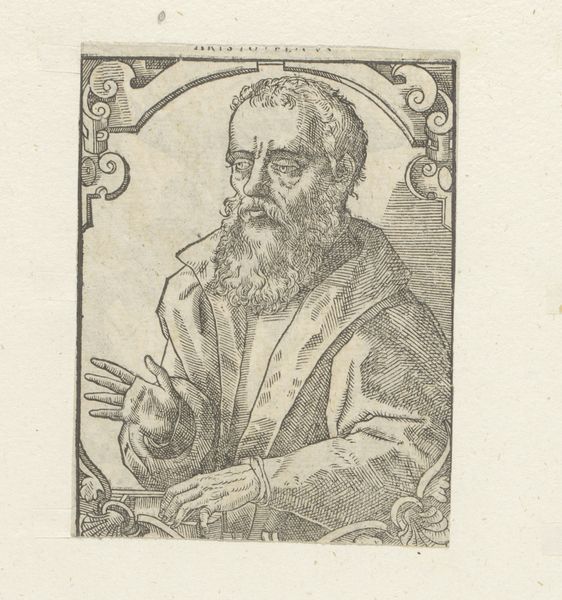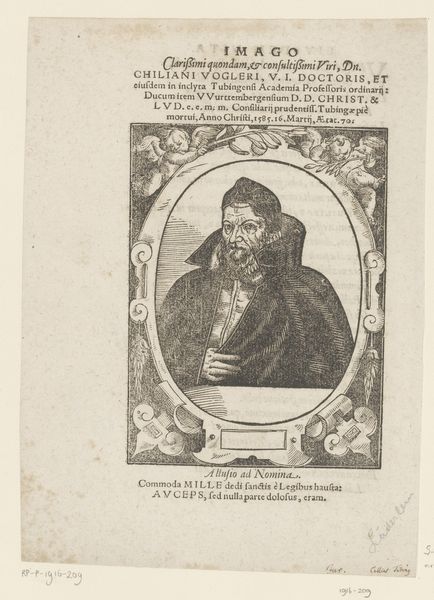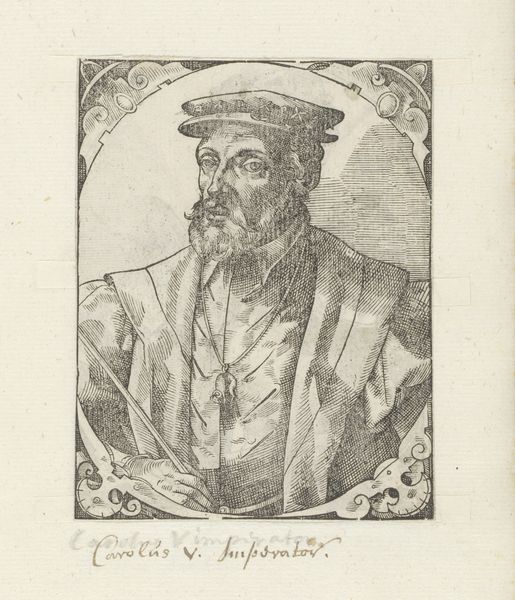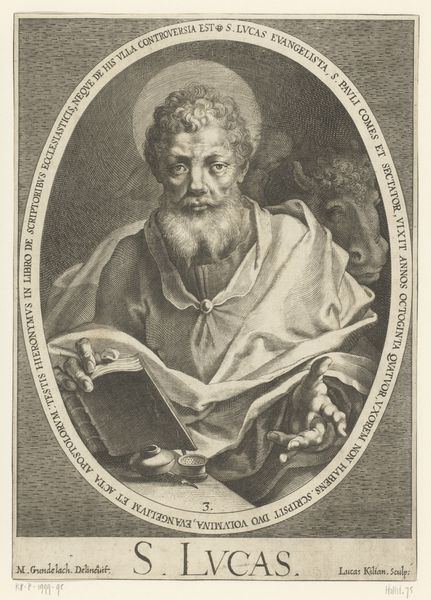
print, engraving
#
portrait
# print
#
pencil sketch
#
old engraving style
#
figuration
#
pen-ink sketch
#
history-painting
#
italian-renaissance
#
engraving
Dimensions: height 107 mm, width 86 mm
Copyright: Rijks Museum: Open Domain
This portrait of Alfonso d’Este was made anonymously as a small engraving, at an unknown date. What does it mean to capture the likeness of a Duke like this? Well, in Renaissance Italy, powerful families like the d’Estes used images to build their authority. Portraiture, like this, served as a kind of propaganda. Though it's small, the image presents Alfonso in a very particular way; a formal decorative border surrounds the Duke, whose stern expression and luxurious fur-lined coat speaks to his status and authority. Note also the chain of office. This isn't just any man, and the artist ensures we know it. The study of a portrait like this, involves tracing the histories of artistic patronage and the codes of power. We can look at how portraiture functioned within the social and political context of Renaissance Italy, and in doing so, enrich our understanding of the reciprocal relationship between art and power.
Comments
No comments
Be the first to comment and join the conversation on the ultimate creative platform.
